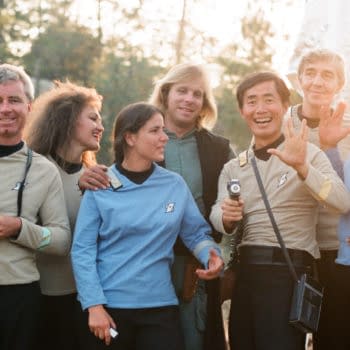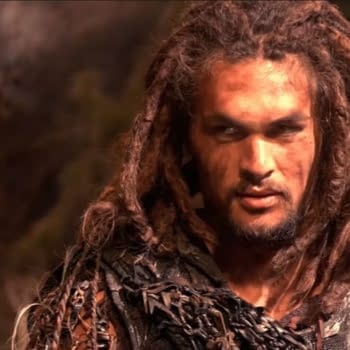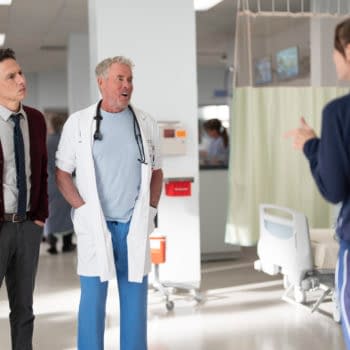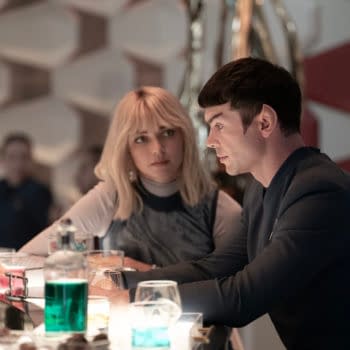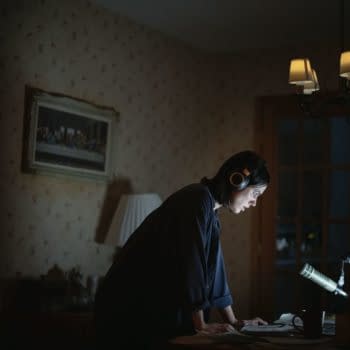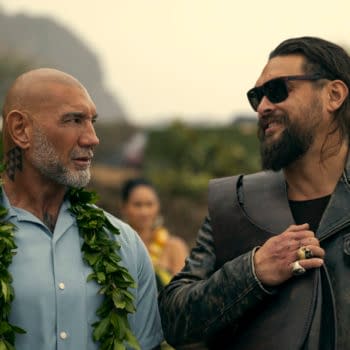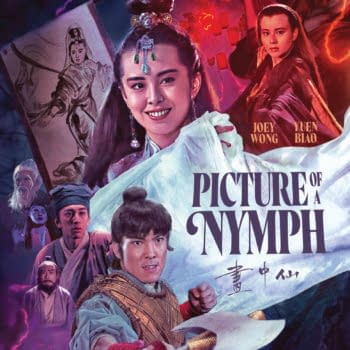Posted in: Exclusive, Interview, Movies | Tagged: Off the Record, quiver distribution
Off the Record: Kirsten Foe on Growing as a Director, Building Tension
Kirsten Foe spoke to Bleeding Cool about her Quiver music drama "Off the Record," growing as a director, the importance of female voices & more.
Article Summary
- Kirsten Foe discusses her transition from stunts to directing her debut feature, Off the Record.
- The film explores a young woman reclaiming her identity in a manipulative music industry relationship.
- Foe shares lessons learned directing shorts, emphasizing the value of assembling energetic new talent.
- She details the challenges of shooting difficult, emotional scenes and using a female-led crew for support.
Kirsten Foe is an underdog success story in Hollywood, initially coming up through the stunt world and taking the occasional acting role before embracing her versatility behind the scenes in cinematography, writing, producing, and directing. Inspired by her rise in Hollywood, along with stories from across the entertainment industry, she decided to turn that into a romantic music drama, Off the Record, from Quiver Distribution. The film follows Astor Grey (Rainey Qualley), a rising singer-songwriter, who falls for washed-up rock star Brandyn Verge (Ryan Hansen). Their whirlwind romance spirals into a dark tale of manipulation, forcing Astor to fight for her independence and reclaim her music and identity. Foe spoke to Bleeding Cool about how Off the Record was perfect to make her feature directing debut, how she preferred seeking like-minded artists who are coming up like she has, and how an intimacy coordinator helped get the cast and crew through the film's most difficult scenes.
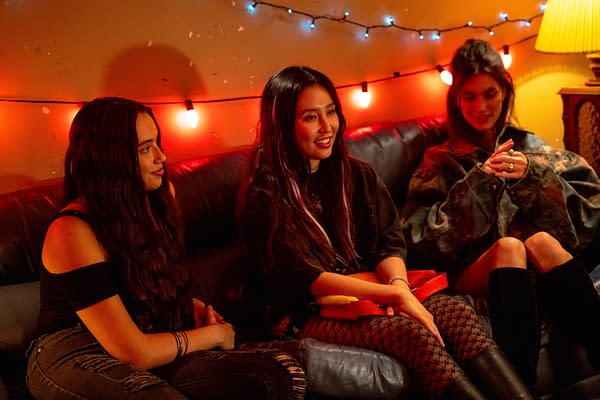
Off the Record: Kirsten Foe on Graduating to Feature Debut After Directing Shorts, Resourcefulness, and Her Most Difficult Scene
Bleeding Cool: What made this movie perfect for your feature debut? Does your approach to directing have any crossover with your stunt work?
It's an interesting crossover in that I played a lot of victims. I played a lot of women who didn't have a voice or who were silenced quickly if they did have a voice, but they weren't often well-developed characters. They were just victims, and that always bothered me. I wanted to have a bigger role in creating the characters instead of just playing them. When I started writing [Off the Record], I had been in LA for around three years and was living on a boat in the marina. I was out there hustling with stunts, dealing with stuff I shouldn't have had to deal with, the extra hoop stuff.
I read an article in the New York Times that also inspired me about women's experiences in the music industry, and I wanted to give a young woman a voice, where she stands up to a powerful man, fights back, and comes out okay. It's not like she comes out perfect in the end. She doesn't, but she learns a lesson, gains some autonomy, and I wanted to show a flawed protagonist who's fighting for control of her dreams. Like I said, it was very much an experience I was living, also.
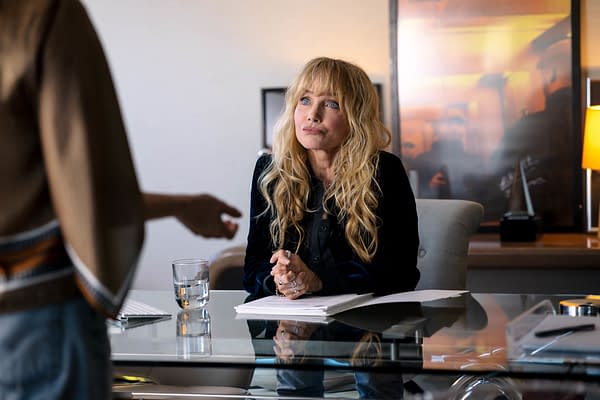
What were the lessons you learned while directing your shorts that helped you most while you were making this movie?
In the beginning, it was definitely team-building. It was like, "Just throw a group of your friends together." Your random friend is like doing sound, and you figure out quickly that it doesn't work as far as getting the quality that you want, finding talented people, and being able to pay them. It's important when people talk to me about filming shorts or small projects to really stress that you need to budget. It's not fair to ask professionals to work for free.
You need to create a budget where people can come in and do their jobs the way that they need to, so that was a big lesson for me. The first short I did cost $500, and as I did more, the budget grew, and I was able to bring in these people. You realize that, yes, it costs more, but you're getting something. There's a lot of value to hiring professionals, and another thing I learned is that it's valuable to hire people who are moving up. My DP for Off the Record, Em Michelle Gonzalez, has been a fantastic camera operator for years, and she's been in a position where she was ready to move up but hadn't been given that opportunity. I found a lot of people like that who were very talented individuals who, for whatever reason, had been overlooked.
My personal experience was that those people came in with so much energy, creativity, and excitement, because they're building something and proving themselves, maybe more so than some of the veterans I spoke to, who thought it was a check. That's fine, I get it. We all need to make paychecks, but for me, coming in at the beginning, too, I didn't want to get run over. I didn't want a bunch of people who were like, "No, we're not doing that," and do what they want to do, so having this fresh, bright, and energetic group of mainly women, department heads was something I had learned through all my other years of how to put the team.
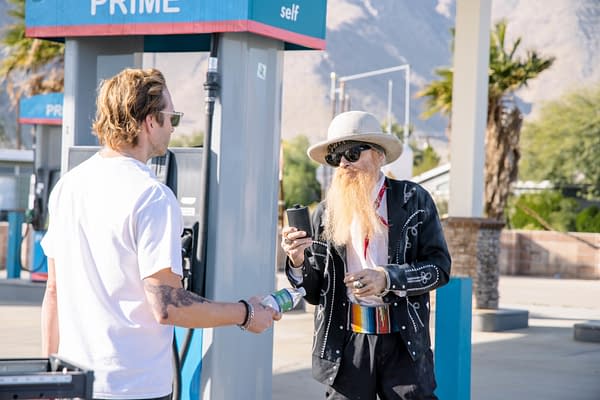
What was the most difficult sequence in the film?
Goodness! The bedroom scene where [Brandyn] disrespects her was a hard one. As I mentioned, we had a lot of female department heads, and that was the room full of women, our intimacy coordinator, who was also a woman, and Ryan. Ryan was great, obviously, always very respectful, but it was still a difficult scene. Afterward, there was a conversation amongst the women of the time about things like this happening to us. That's always hard to have people…in one way, as a filmmaker, you want to make impactful things, and you want people to be like, "Wow, this is really hard for me to watch or powerful for me to watch" because it's bringing out these emotions in me. As filmmakers, you want to bring out emotion in people, but it's hard as a director when people in your room are crying. That is something I try to be careful about, not having violence or sexual violence, like a trigger, right? In this case, it was part of the story that I thought needed to be shown, but we also tried not to stay with it too long. It was really uncomfortable to film.
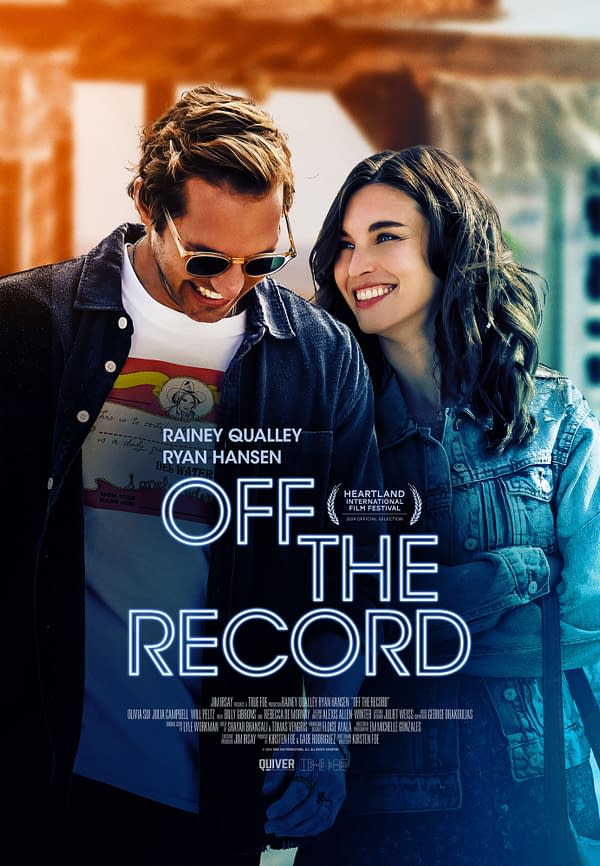
Off the Record, which also stars Olivia Sui, Julia Campbell, Rebecca De Mornay, Will Peltz, Billy Gibbons, Peyton Manning, and Edgerrin James, is currently available on demand and digital.






